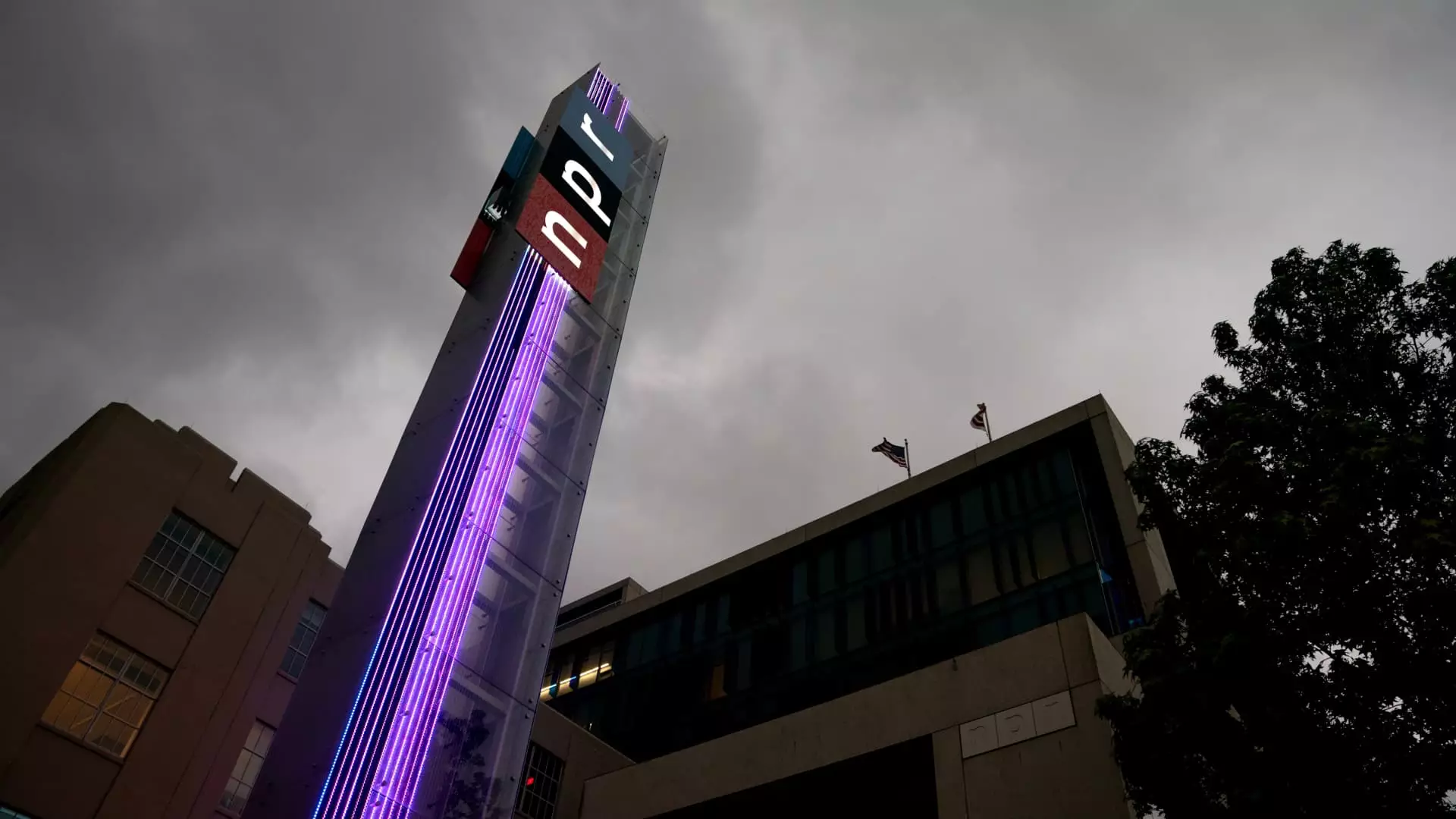In an alarming twist of the political landscape, the escalating tension between media freedom and governmental authority has reached an unsettling peak with President Donald Trump’s executive order intended to halt all federal funding for National Public Radio (NPR) and other public broadcasters. This move stands as a stark indictment of the administration’s disregard for the First Amendment, which guarantees not only freedom of speech but also a free press. The lawsuit filed by NPR and three of its member stations highlights a critical juncture in American democracy, where the independence of public broadcasting is perilously at risk, threatening the very information ecosystem that millions of citizens rely upon for effective civic engagement and informed decision-making.
The implications of such actions reverberate far beyond the immediate financial ramifications for these institutions. What is at stake is nothing less than the integrity of public discourse and the bedrock principles that sustain a healthy democracy. When the government positions itself as a gatekeeper to funding based on perceived bias, we are not merely seeing an act of retribution against dissenting voices; we are witnessing a concerted effort to engineer a media landscape that suits specific political aims.
The Heart of the Issue: Funding and Independence
It is critical to dissect the funding dynamics of NPR and similar organizations to understand the context of this lawsuit. Although roughly one percent of NPR’s revenue is derived directly from federal allocations, public broadcasting creates a profound impact through local member stations, supported significantly by Corporate Sponsorship — nearly 36% of NPR’s funding. This intricate financial tapestry underscores that the effects of Trump’s executive order could fundamentally alter how journalism operates on a local level, further constraining an industry already grappling with the challenges of credibility and trust.
When press freedom becomes weaponized in the hands of people in power, it raises an uneasy question: How can a democracy prosper if its media is held hostage to partisan grievances? The assertions made by White House officials that NPR and other public media platforms are somehow biased is a calculated deflection from the accountability the administration ought to exhibit when it comes to public service. Claiming that taxpayer money should not be spent on what they dub “corrosive” coverage, disregards the essential role of a diversified press in scrutinizing government misconduct.
A Lesson from History: The Fight for Media Fairness
Looking back, the historical context surrounding media funding reveals a pattern of vulnerability faced by public broadcasting as a government entity. From the Reagan administration’s initial cuts to the constant threats of de-funding, public media has often been in a precarious position, fighting for resources in a climate riddled with political antagonism. In reality, the durability of public media stems from its commitment to uphold journalistic standards that do not bow to any single narrative.
The overarching theme in the lawsuit against Trump reflects a resistance to the erosion of these standards. Indeed, attorneys for NPR have framed their argument around an essential truth: Congress has long revered the separation between governmental funding and editorial independence. The legal complaint highlights how the president’s actions constitute textbook retaliation — a dangerous precedent that could chill the willingness of journalists to engage in critical discourse about power.
The Path Forward: Defiant Solidarity for Media Freedom
A pivotal moment has unfolded in the legal arena, capturing the struggle for journalistic integrity and freedom of expression in the United States. Public broadcasting, more than just a news source, serves as a lifeblood of nuanced discussions and diverse viewpoints, essential for a well-informed electorate. As citizens, we must recognize that the fight for NPR and its affiliates is not just an appeal on behalf of a media organization, but a clarion call to safeguard the public’s right to unbiased and comprehensive news coverage.
In the face of relentless attacks on the media ecosystem, it is incumbent upon us to remain vigilant. We cannot afford complacency in our defense of public broadcasting; rather, we must galvanize support for these institutions, understanding that their survival is synonymous with the preservation of our democratic ethos. Engaging critically with this pressing issue reaffirms that media freedom is not merely an abstract right, but a tangible necessity for an open and progressive society.

